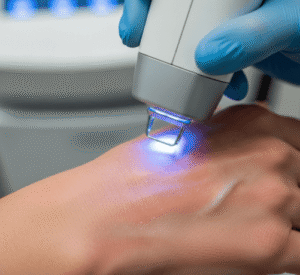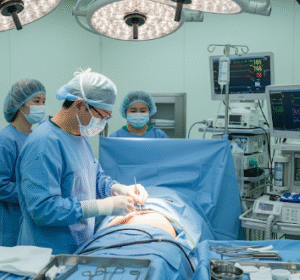Overview
Cryptosporidiosis is a parasitic infection caused by the protozoan Cryptosporidium. It primarily affects the intestines, leading to diarrhea and digestive issues. The infection can be particularly severe in immunocompromised individuals, such as those with HIV/AIDS or undergoing chemotherapy. South Korea offers advanced diagnostic testing and treatment options for effective management.
What is Cryptosporidiosis?
Cryptosporidiosis occurs when Cryptosporidium parasites are ingested, usually through contaminated water, food, or contact with infected individuals or animals. The parasites invade the intestinal lining, causing inflammation and impaired absorption of nutrients and fluids.
Symptoms
- Watery diarrhea (often profuse and persistent)
- Stomach cramps and abdominal pain
- Nausea and vomiting
- Low-grade fever
- Weight loss and dehydration
- Fatigue and general weakness
Causes
- Ingesting contaminated water, including swimming pools or untreated drinking water
- Eating contaminated food
- Contact with infected animals (especially cattle)
- Person-to-person transmission, especially in daycare centers or households
- Weakened immune system increasing susceptibility
Risk Factors
- Children and infants
- Immunocompromised individuals (HIV/AIDS, organ transplant patients, chemotherapy)
- Travelers to areas with poor sanitation
- Close contact with farm animals
- Swimmers using public or untreated water sources
Complications
- Severe dehydration, especially in children and the elderly
- Malnutrition due to chronic diarrhea
- Worsening of preexisting immune system conditions
- Prolonged illness in immunocompromised patients, potentially life-threatening
Prevention
- Drink treated or boiled water
- Wash hands thoroughly with soap and water
- Avoid swallowing water from pools, lakes, or rivers
- Wash fruits and vegetables carefully
- Maintain proper hygiene in daycare centers and healthcare settings
- Immunocompromised individuals should take extra precautions around animals and untreated water
Treatment Options in Korea
South Korea offers comprehensive care for Cryptosporidiosis, focusing on hydration, medications, and supportive care:
- Diagnosis
- Stool examination for oocysts
- PCR testing to detect Cryptosporidium DNA
- Blood tests to assess dehydration and electrolyte imbalance
- Supportive Treatment
- Oral or intravenous hydration therapy
- Electrolyte replacement
- Nutritional support for children and at-risk adults
- Medications
- Nitazoxanide – approved in Korea for treating cryptosporidiosis
- Symptomatic relief medications for diarrhea and abdominal cramps
- Special Care for Immunocompromised Patients
- Adjusting immunosuppressive therapy if possible
- Close monitoring for complications
- Combination of antiparasitic treatment and supportive care













